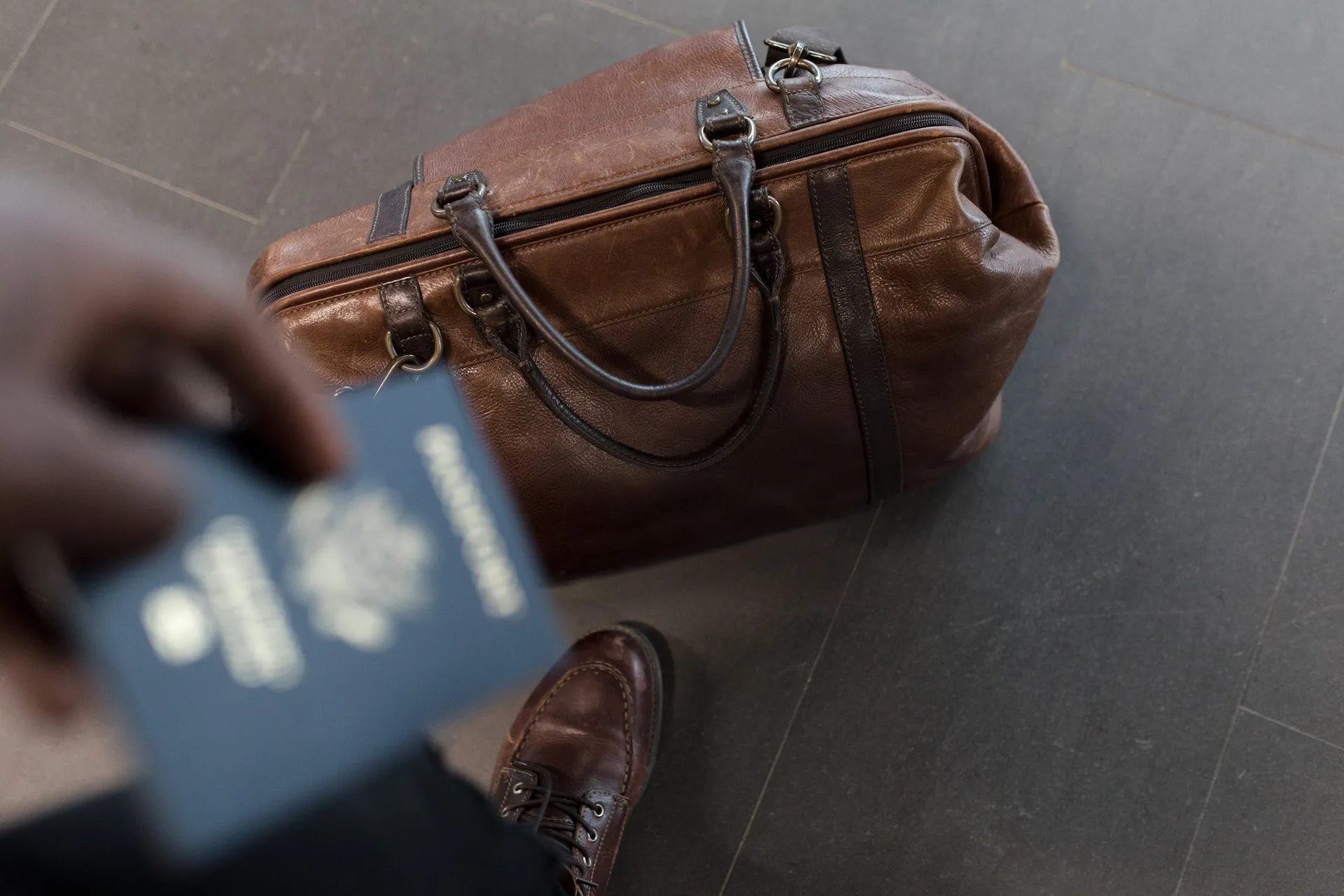Ireland Work Visas
As Ireland has high standards of living, it attracts many professionals from abroad. If you are an EU/EEA national, you have an automatic right to work there. If, however, you are a citizen of a non-EEA country, you have to apply for a work visa in order to be able to undertake employment in Ireland.
Call us today on +44 (0)333 414 9244 or +353 (0) 61 518 025 to receive professional assistance with applying for an Irish Work Visa.
Read our 1001 reviews
Request a call back from our immigration experts
Benefits of Choosing IAS‘ Ireland Immigration Lawyers
When it comes to obtaining an Ireland visa or permit, IAS Ireland immigration lawyers are well-equipped to help you.
With IAS’ track record of successfully helping clients visit or immigrate to Ireland successfully, we can help you achieve your goal.
Our dedicated immigration lawyers provide our services through a comprehensive and personalised approach. With IAS, you enjoy:

Compassionate support from an experienced immigration lawyer dedicated to your success



Support in gathering supporting documents and completing a high-quality application.



Confidence that your case is being handled by an experienced team.



In-house document checks done by lawyers who are well-versed in Ireland immigration matters.
Services we Provide
What is the Irish Work Visa?
Irish Work Visas are intended for non-EEA nationals who wish to come to Ireland to find employment.
If you are a citizen of a visa-required country, you have to apply for an Irish Work Visa from your home country, prior to arriving in Ireland. If you try to seek entry to Ireland without a valid entry visa, you will not be allowed in.
To be able to receive a work visa to Ireland you have to meet a number of eligibility requirements. If you are not sure whether you qualify for the Irish Work Visa, talk to our immigration experts. They will assess your eligibility and will help you submit your application.
Can I come to Ireland to work?
Before you come to Ireland to work, you have to know if you have the right to do so. The process of coming to Ireland to look for employment differs depending on your nationality.
If you are a UK national, you have the right to live and work in Ireland without any restrictions under the Common Travel Area agreement. That means that you do not have to meet any conditions or apply for an Ireland work permit before you move to Ireland, even if you want to stay there permanently.
If you are a citizen of an EU/EEA member state, or a citizen of Switzerland, you have the right to enter Ireland freely and stay there for up to 90 days without a visa. You have the right to work without an employment permit during this period. After the 90 days, you might be able to stay in Ireland longer and keep working if you can prove that you are employed or self-employed and have enough money to support yourself.
Finally, if you are a citizen of a non-EEA country, you have to apply for an employment visa before arriving in Ireland to be able to live and work there.


What types of employment permits to Ireland are there?
The main employment permits to Ireland are the Critical Skills Employment Permit and the General Employment Permit.
The Critical Skills Employment Permit is intended for highly-skilled foreign workers coming to fill occupations that are in shortage in the Irish labour market and are critical to the Irish economy. This permit is highly sought-after as its holders can quickly acquire permanent residency in Ireland.
The General Employment Permit covers more occupations than the Critical Skills Employment Permit. In fact, almost all types of foreign workers can apply for it.
For either work permit you must have a job offer in Ireland. Jobs under the General Employment Permit are also subject to the Labour Market Needs Test (LMNT).
Since 2024, workers on general or critical skills employment permits can switch employers after 9 months.
In addition to these permits, depending on your skills and field of expertise you might be able to acquire one of the following employment permits to Ireland:
- Contract for Services Employment Permit
- Intra-Company Transfer Employment Permit
- Reactivation Employment Permit
- Internship Employment Permit
- Sport & Cultural Employment Permit
- Dependent/Partner/Spouse Employment Permit
- Exchange Agreement Employment Permit.
Before you can apply for a Work visa to Ireland you need to obtain your employment permit. If you are not sure which employment permit is the right one for you, get in touch with our team and they will help you determine it.
How to apply for an Ireland Work Visa?
To apply for an Ireland Work Visa, you have to complete and submit an application form using the Employment Permits Online System (EPOS). Once you do that, your application will be placed in a processing queue.
An immigration official will then review the skills and qualifications you mentioned in the application form and will assess your eligibility for your chosen employment permit. If they might ask you to submit more information, you will have 28 days to provide the requested evidence.
Once the immigration official reviews your application and evidence you included, your application will be either accepted or refused. If your application is unsuccessful, you will be given reasons for the decision and you can appeal it. It is advisable to consult an immigration lawyer or a member of our highly-trained immigration experts before submitting an appeal.


How much do Irish Work Visas cost?
How much you will have to pay for an Irish Work Visa depends on which employment permit you have. Usually, the total cost of applying for an Irish Work Visa covers a fee for the employment permit and a fee for the actual Work Visa. The price of an Irish Work Visa also depends on how long you intend to stay in Ireland.
The Irish employment fees you might have to pay are:
- €1,000 for a for a General, Critical Skills, Intra-Company Transfer, Contract for Services, Reactivation, Sport and Cultural and Internship Permits if you want to spend up to 24 months in Ireland
- €500 for the permits mentioned above if you want to spend up to 6 months in Ireland
- €1,500 to renew your employment permit from 6 up to 36 months.
Additionally, you will have to pay the following fees for the visa to Ireland:
- €60 for a single-entry visa to Ireland
- €100 for a multiple-entry visa to Ireland.
If you want to apply for the Exchange Agreement Permit coming to Ireland to work under an international agreement for up to 2 years, you will not have to pay a fee for the permit.
How can IAS help?
Applying for Irish Work Visas can be a complex process, especially if you do not have thorough knowledge of Irish immigration law and the visa application process. Luckily our highly-qualified consultants can guide you through each step from start to finish and can explain to you in detail what documents you need to submit.
At IAS, we are committed to helping our clients relocate to Ireland and work there. We will assess your qualifications and skills to help you decide which employment permit you should choose. We will be around to answer all your questions, making the whole process clear and stress-free.
Thanks to our teams’ assistance and expert advice you can maximise the chances of your application being accepted.
Get in touch by calling +44 (0)333 414 9244 or +353 (0) 61 518 025 to find out more about how we can help.
Table of Contents
Table of Contents will appear here.Legal Disclaimer
The information provided is for general informational purposes only and does not constitute legal advice. While we make every effort to ensure accuracy, the law may change, and the information may not reflect the most current legal developments. No warranty is given regarding the accuracy or completeness of the information, and we do not accept liability in such cases. We recommend consulting with a qualified lawyer at Immigration Advice Service before making any decisions based on the content provided.
Frequently Asked Questions
The Dependent/Partner/Spouse Employment Permit is intended for those who are dependents, de facto partners, or spouses of Critical Skills Employment Permit holders. If their application is successful, they can apply for any type of job in Ireland. The only exception is the position of a domestic operative.
To be eligible for this permit, applicants have to live with the Critical Skills Employment Permit holder who is working and living in Ireland.
Those who are in full-time education are not eligible for this type of permit.
For you to be able to receive the Critical Skills Employment Permit, your job has to be characterised by one of the following requirements:
- It is a profession with an annual salary of at least €38,000 that has been listed on the Highly Skilled Occupations List.
- It is a profession with an annual salary of at least €64,000 (provided that it has not been put on the Ineligible List of Occupations for Employment Permits).
Additionally, your job offer in Ireland has to be for at least two years and you have to be able to prove that they have relevant qualifications, skills, and work experience.
The Dependent/Partner/Spouse Employment Permit is intended for those who are dependents, de facto partners, or spouses of Critical Skills Employment Permit holders. If their application is successful, they can apply for any type of job in Ireland. The only exception is the position of a domestic operative.
To be eligible for this permit, applicants have to live with the Critical Skills Employment Permit holder who is working and living in Ireland.
Those who are in full-time education are not eligible for this type of permit.
For you to be able to receive the Critical Skills Employment Permit, your job has to be characterised by one of the following requirements:
- It is a profession with an annual salary of at least €38,000 that has been listed on the Highly Skilled Occupations List.
- It is a profession with an annual salary of at least €64,000 (provided that it has not been put on the Ineligible List of Occupations for Employment Permits).
Additionally, your job offer in Ireland has to be for at least two years and you have to be able to prove that they have relevant qualifications, skills, and work experience.
To prove your eligibility for an Irish Work Visa, you have to submit the following supporting documents:
- Valid passport
- Two passport size photographs
- Signed letter of application in which you include your personal details and state the reason for you wanting to come to Ireland
- Confirmation of you having obtained a relevant employment permit
- Details of your job offer or an employment contract
- Letter from your prospective employer in Ireland
- Proof confirming your qualifications and work experience
- Evidence of having enough finances to support yourself after you arrive in Ireland
- Details of any previous visas to Ireland.
All documents you submit as part of your application have to be in English. That means that if any of the required documents was issued in a language that is not English, you have to have them translated by a professional translator.
Each translated piece of evidence has to include a confirmation from the translator that the document is an accurate translation of the original document. The translator’s full name, signature, and contact details should also be listed.


What our clients are saying
How our UK Immigration Lawyers can help
At the Immigration Advice Service our lawyers specialise in a wide range of UK visas, nationality and asylum applications and have represented clients in various successful complex and high-profile cases.















